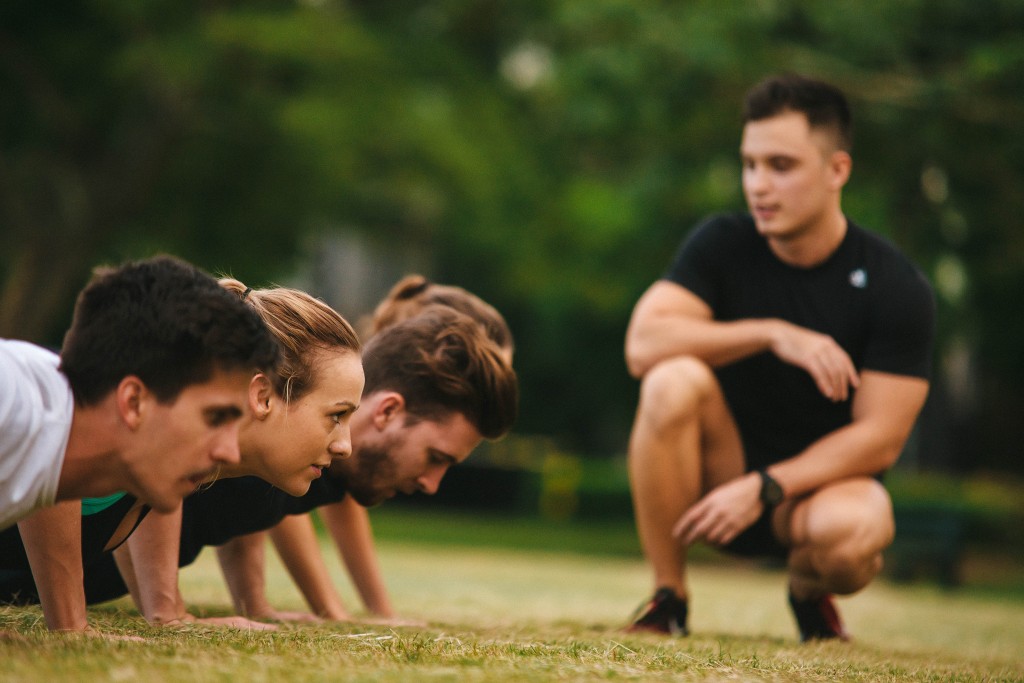5 habits to master to transform your 2018
2018 is now in full swing – school holidays are officially over, the Australia Day long weekend has passed and everyone is now full steam ahead into the working year. Welcome back to a more consistent routine! With that in mind, now is the time to establish some healthy habits to get you moving towards your health and fitness goals fast. Whilst the following this isn’t rocket science, being on top of these few steps will ensure you are moving forward efficiently. Here are 5 habits to master to transform your body.
1. Moving more outside of your gym sessions
Whilst everyone’s new year goal tends to be to go to the gym more, or to eat better, when it comes to getting back in shape, something that’s often overlooked, but that is so simple to do, is to just move more in general. Aiming for 30-60 minutes of activity each day in addition to your gym or boot camp sessions ensures you are more active more often. This goal is especially beneficial for people who sit down at a desk all day. Options to move more could include going for a walk when you wake up or during your lunch break, parking further away, or simply just taking the stairs. Walking also aids in your recovery and digestion. Taking up a social sport or activity to mix things up with your normal gym routine is beneficial too given you can catch up with friends while being active.
2. Sleeping 7-9 hours per night
Sleeping more is one of the most overlooked aspects of fat loss, muscle gain and improved performance. Your body recovers primarily when sleeping, so getting some shut eye for 7-9 hours each night will give the body time to rebuild the torn muscle tissues which occur during training and ensure you are recovered adequately for whichever physical activities you may do the following day. Lack of sleep causes a drop in certain hormones (leptin) which play a key role in how ‘full’ you feel, making you more likely to consume more calories through snacking and cravings. Remember, quality counts, so limit the phone and Netflix before bedtime!
3. Controlling your portion sizes
Whilst we’ve recommended the approximate counting of calories through apps such as ‘My Fitness Pal’ in the past (which we still maintain is a useful tool to educate people on the macronutrient and calorie breakdown of different foods), calorie counting can be flawed due to the inaccuracy of food labels and the potential negative and obsessive effect it can have on your eating behaviours. So, with that in mind, try measuring portion sizes using the palm of your hand as a simple and flexible guide – this idea stems from our friends at Precision Nutrition. Aim for 80-90% of your diet coming from whole foods, with the remaining 10-20% spent on whatever you like, assuming you are eating adequate amounts of protein.
4. Increasing water intake and limiting liquid calories
Maybe you’ve read that increased water intake assists with fat loss, but it is not water per se that achieves this, but rather the effect that it may have on your drinking habits, in particular, by replacing ‘liquid calories’ you may have – such as juices, soft drinks or alcohol – with water intake. Drinking enough water per day (2-3L per day) has major health benefits. Studies have shown adequate water intake assists in the transfer of nutrients throughout the body, flushes out toxins, lubricates your joints and digestive tract, and regulates your body temperature through sweating. One particular study which was conducted a few years back showed that drinking 500ml of water increases your energy expenditure (calories burnt) by 24% (1). With this in mind, drink plenty of water before exercise and before meals as this is likely to increase your metabolism for the following hour and make you feel more full before eating.
5. Being mindful of recovery and managing stress
Being mindful of recovery is often something that is overlooked when people increase their activity levels. Above we mentioned the importance of sleep for recovery, but don’t forget that stretches and foam rolling maintains and improves your flexibility and mobility (recovery) too. Yoga is an obvious option here given you focus on not only stretching, but also the calmness of your mind through controlled breathing. Yoga also helps you mix up your exercise routine – lower intensity activities such as yoga, walking, pilates and meditation, combined with higher intensity exercises such as resistance training, conditioning and cardio provides a good mix of endorphin releasing and mindfulness exercises. Another very simple technique to help deal with stress is spending time in nature. Whether that is just by eating lunch in a park, or adding more greenery to your household or office, nature helps lower your stress hormones and heart rate, and improves your mood.

